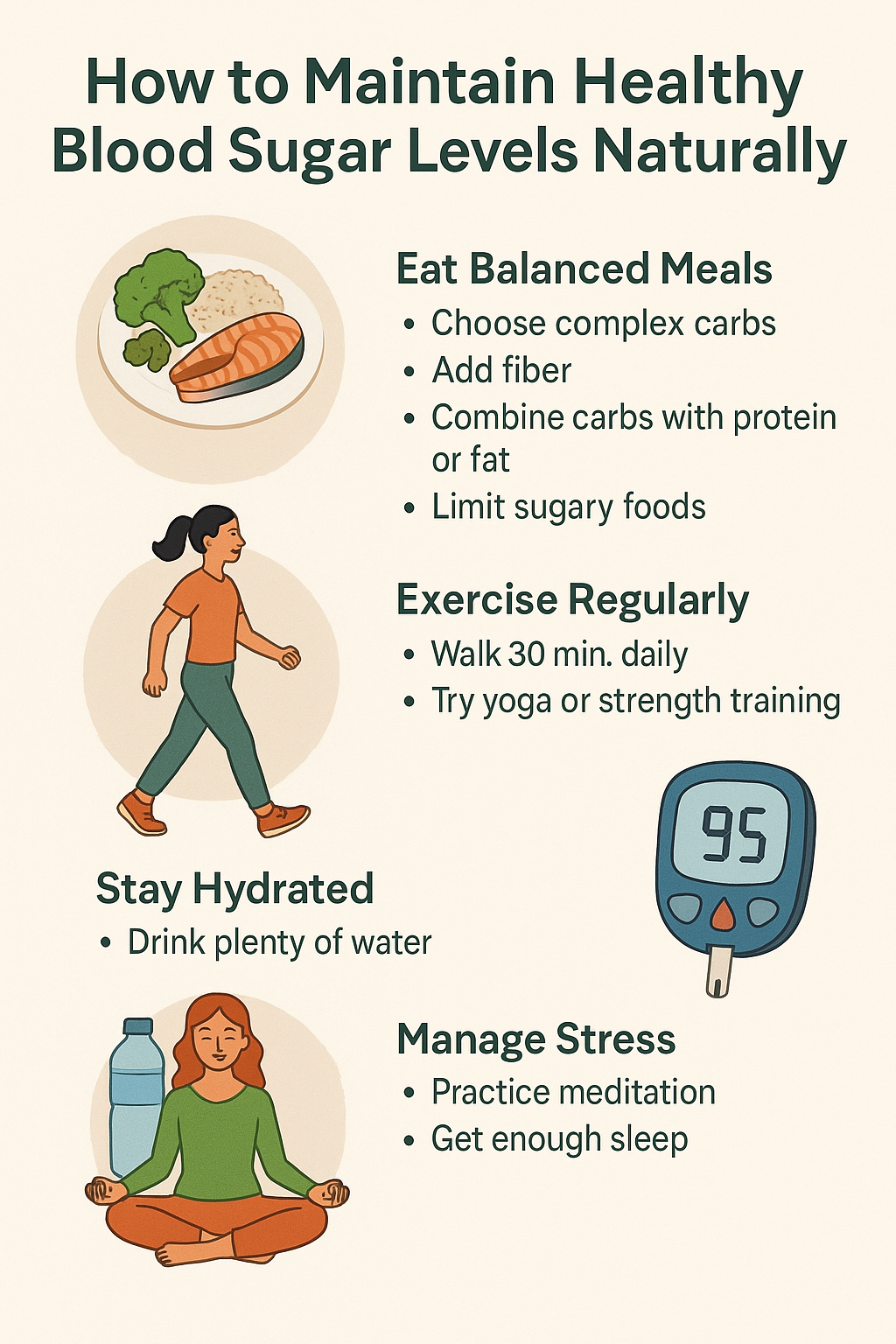Maintaining a healthy blood sugar level is essential for overall well-being and preventing conditions like diabetes or hypoglycemia. The first step is to focus on a balanced diet. Choose complex carbohydrates such as brown rice, millets, quinoa, and oats instead of refined carbs like white rice or white bread. Include plenty of fiber from vegetables, fruits with skin, lentils, and seeds, as fiber helps slow down sugar absorption in the bloodstream. It’s also important to combine carbohydrates with protein or healthy fats — for example, pairing fruit with nuts or chapati with dal — to prevent sudden sugar spikes. Limiting sugary foods, desserts, and soft drinks can make a big difference, while portion control helps avoid overloading the system with glucose.
Regular exercise is another key factor in keeping blood sugar steady. Engaging in physical activities like brisk walking for 30 minutes daily, yoga, or light strength training improves the body’s ability to use insulin effectively. Exercise also supports weight management, which plays a major role in blood sugar control. Staying hydrated is equally vital since water helps flush out excess sugar through urine and supports kidney function. Aim to drink eight to ten glasses of water daily and avoid sweetened beverages.
Stress management is often overlooked but critical because stress hormones can raise blood sugar levels. Practicing meditation, deep breathing, or spending time in nature helps calm the mind and regulate glucose. Getting sufficient sleep — ideally seven to eight hours each night — is also important, as poor sleep can affect insulin sensitivity and increase cravings for sugary foods. Maintaining a consistent sleep schedule and reducing screen time before bed can greatly help.
Monitoring blood sugar regularly provides insight into how your body responds to different foods and activities. Using a glucometer at home and visiting your doctor for HbA1c tests every few months can help you track long-term control. Additionally, some natural ingredients like cinnamon, fenugreek water, bitter gourd juice, and apple cider vinegar may support sugar regulation, though they should be used under medical guidance. Avoiding smoking and limiting alcohol consumption further improves insulin function and protects overall health.
In short, stable blood sugar comes from a healthy lifestyle that balances good nutrition, physical activity, proper hydration, stress control, and adequate rest. Making small, consistent changes in daily habits can prevent dangerous fluctuations and keep energy levels high throughout the day.






Comments